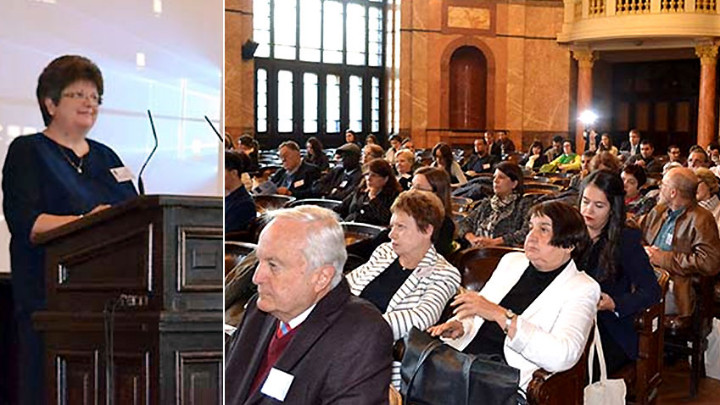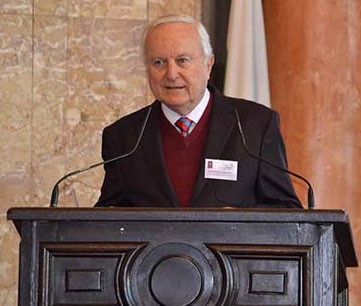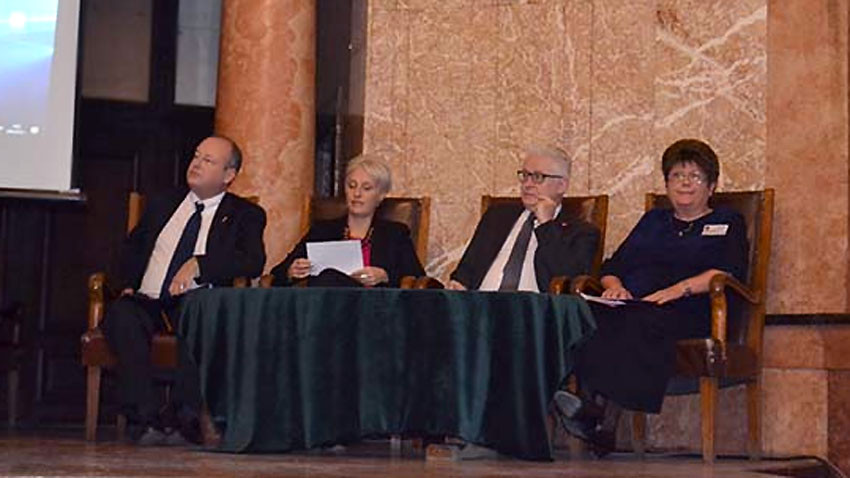
A three-day international conference, entitled “Traditions and Transitions”, which ended Sunday, marked the 90th anniversary of one of the most prestigious departments of Sofia University “St. Kliment Ohridski” – the Department of English and American Studies. The conference has also marked the 130th anniversary of the establishment of the Sofia University, which is the oldest and largest one in Bulgaria.
 Teaching in English as a university discipline in Bulgaria started in 1906 as part of the Sofia University German Studies Department. In 1928 English Studies emerged as an autonomous major. Pioneers like Professor Konstantin Stefanov and Professor Roussy Roussev set the solid foundation of the prestigious department that later grew and developed thanks to the outstanding work of Professor Marco Mincoff, Professor Alexander Shurbanov, Professor Zhana Molhova, Professor Vladimir Filipov and many others.
Teaching in English as a university discipline in Bulgaria started in 1906 as part of the Sofia University German Studies Department. In 1928 English Studies emerged as an autonomous major. Pioneers like Professor Konstantin Stefanov and Professor Roussy Roussev set the solid foundation of the prestigious department that later grew and developed thanks to the outstanding work of Professor Marco Mincoff, Professor Alexander Shurbanov, Professor Zhana Molhova, Professor Vladimir Filipov and many others.
The aim of the conference, celebrating the big anniversary, was to look back at the past, as well as towards future challenges. Some of the most renowned scholars took part in the forum, which brought together lecturers and professors from academic institutions in Bulgaria and abroad, giving them a venue for debates on the topics of traditions and transitions in research work and teaching of disciplines related to English language.
Transition in English and American Studies means seeking new approaches, and re-examining older ones, in order to address multiple issues facing the development of English-language related disciplines in today’s community, organizers said. The conference focused on topics like Politics and Translation, Tradition and Identity, Phonetics, Literature, Linguistics, Transcultural Dialogue, Intercultural Skills, Media Discourse, Interpreting, etc.
Rector of the university, Professor Atanas Gerdzhikov, US Ambassador to the Republic of Bulgaria Eric Rubin, British Ambassador Emma Hopkins, and Irish Ambassador Michael Forbes took part in the opening ceremony of the conference. They all pointed out the significance of this distinguished department of Sofia University and congratulated it for all the achievements throughout the years.

“America and Bulgaria have a lot in common. One thing we definitely share is love for knowledge. Thanks to this department the two countries can be closer" US Ambassador Rubin said and wished students a successful year. "Nothing stands still. Especially not English, and future generations will speak a different version of it than we do today," British Ambassador Emma Hopkins said, speaking on the topic of transition, while the Irish ambassador added that traditions could help transition and countries’ moving forward.
Traditionally, the academic term in Bulgaria starts on October 1 and many young people, both from this country and abroad, enter the halls of the University of Sofia for the first time. They are yet to feel the sense of pride in their 130-year-old Alma Mater. And after 90 years of development, new challenges are to be faced, new scientific peaks are to be conquered, and new milestones are to be set in its renowned Department of English and American Studies.
Three-time world champion and Olympic weightlifter Carlos Nasar will be holding a special event with the Bulgarian community in London on 23 November. According to the organisers, it will be an open conversation in which Nasar will discuss his journey..
On 16 November, we celebrate Caritas Day, when we honour the Catholic Church’s charity organisation that brings hope to those in need through care and acts of mercy . It reminds us that financial gain is not what matters most. What truly matters is..
The first museum of investment gold is welcoming visitors in Plovdiv who want to learn more about the history of money and its connection to gold – from the birth of gold, its cosmic origin, and its journey to Earth, to how this precious metal has..

+359 2 9336 661
